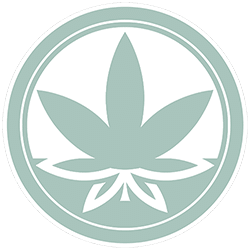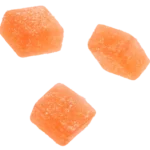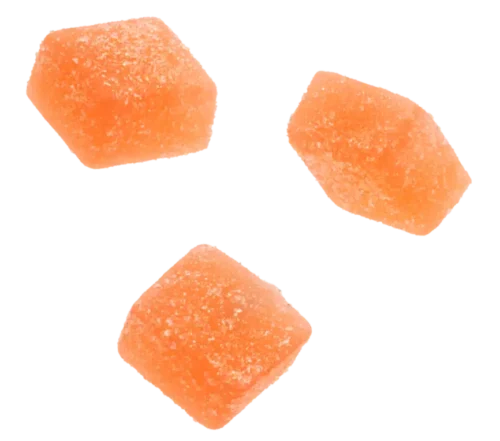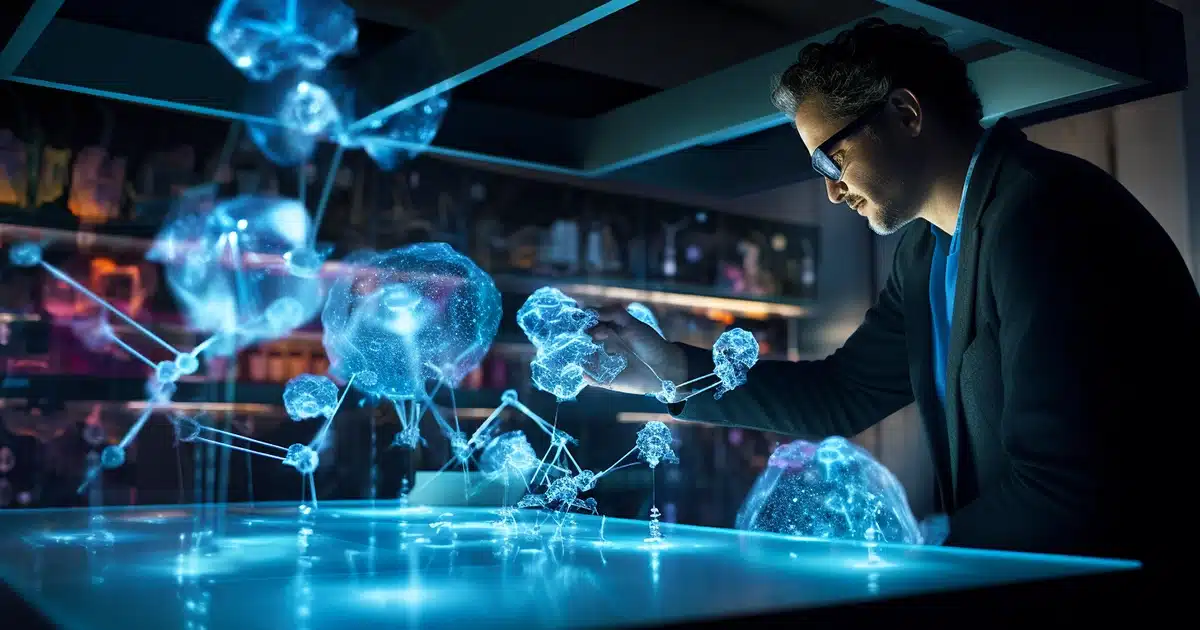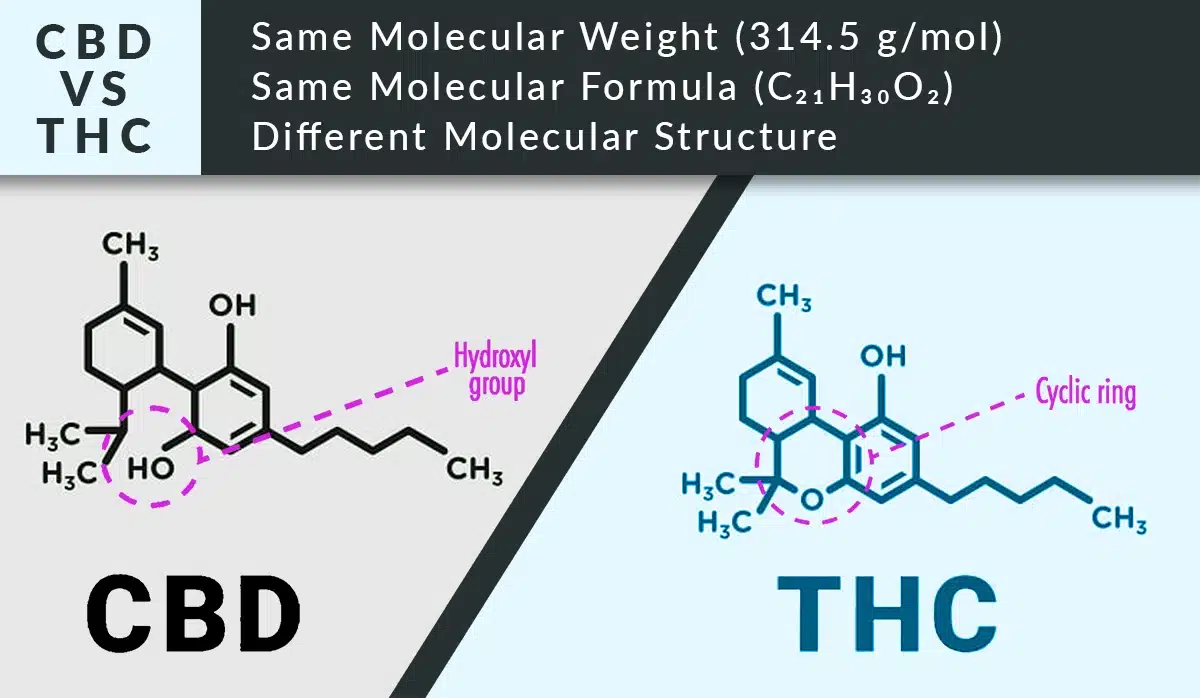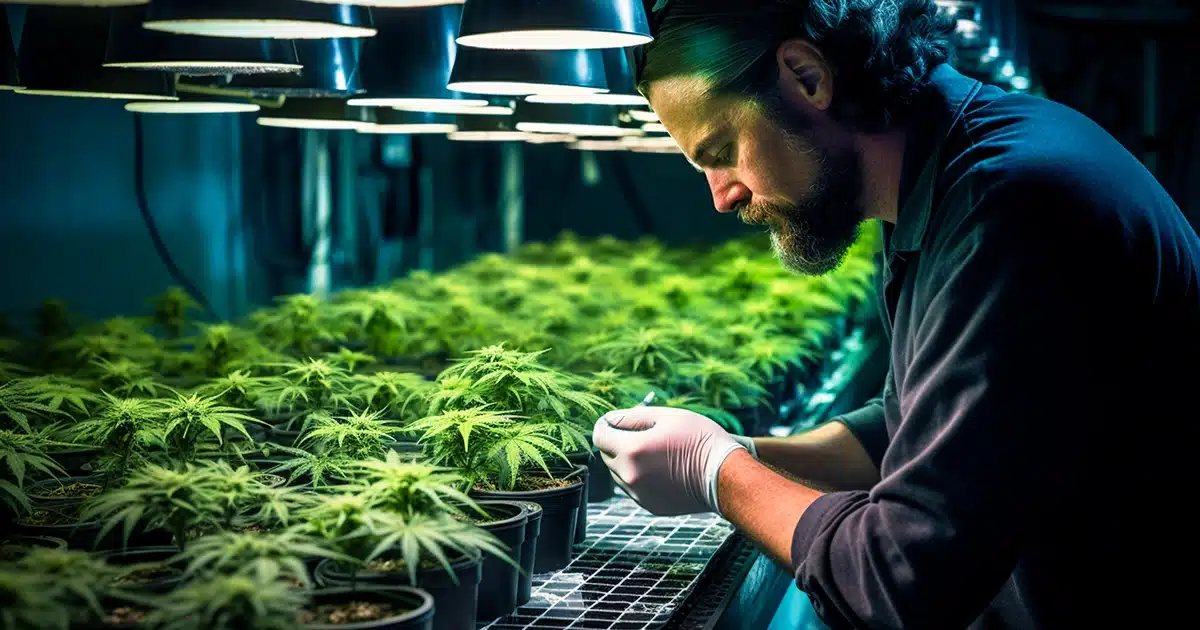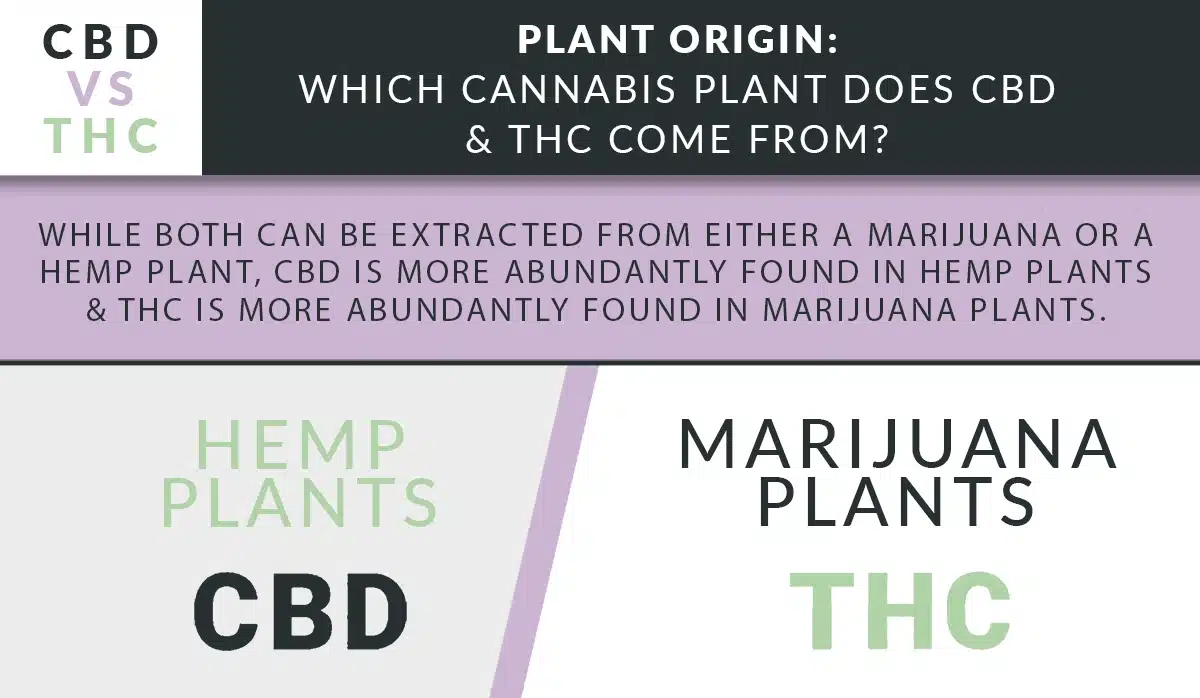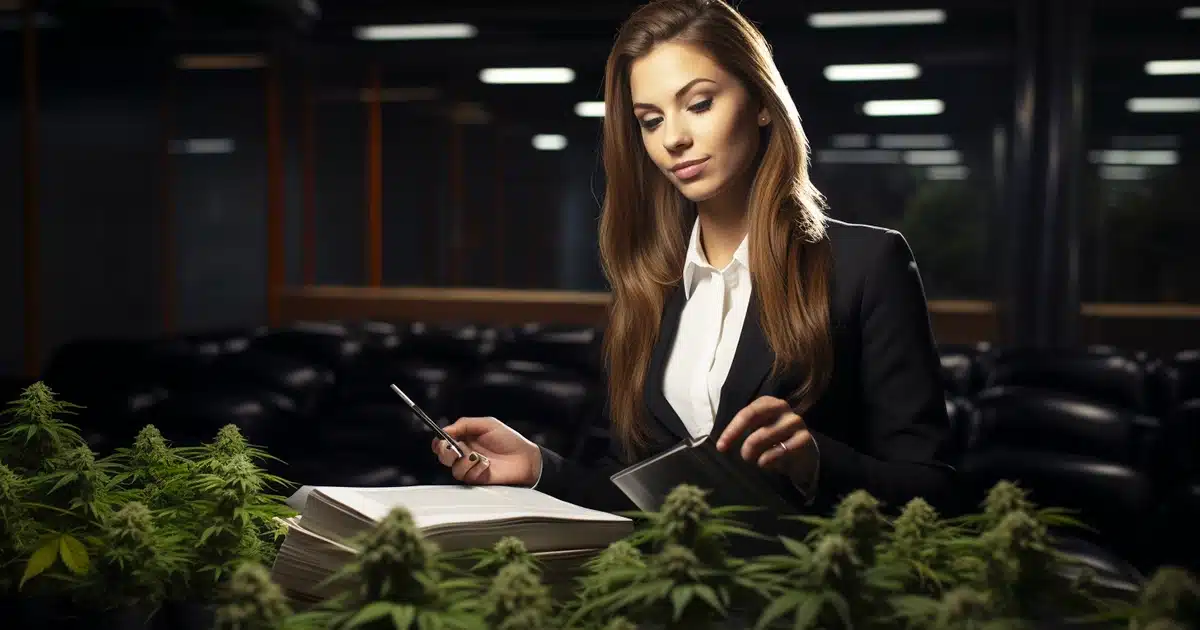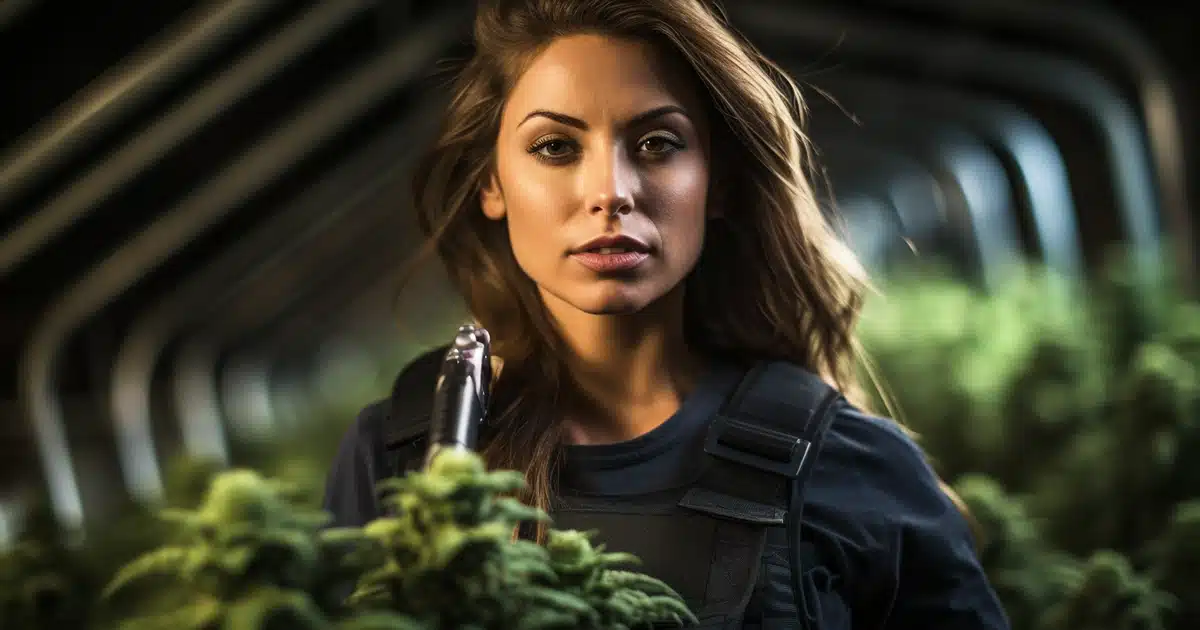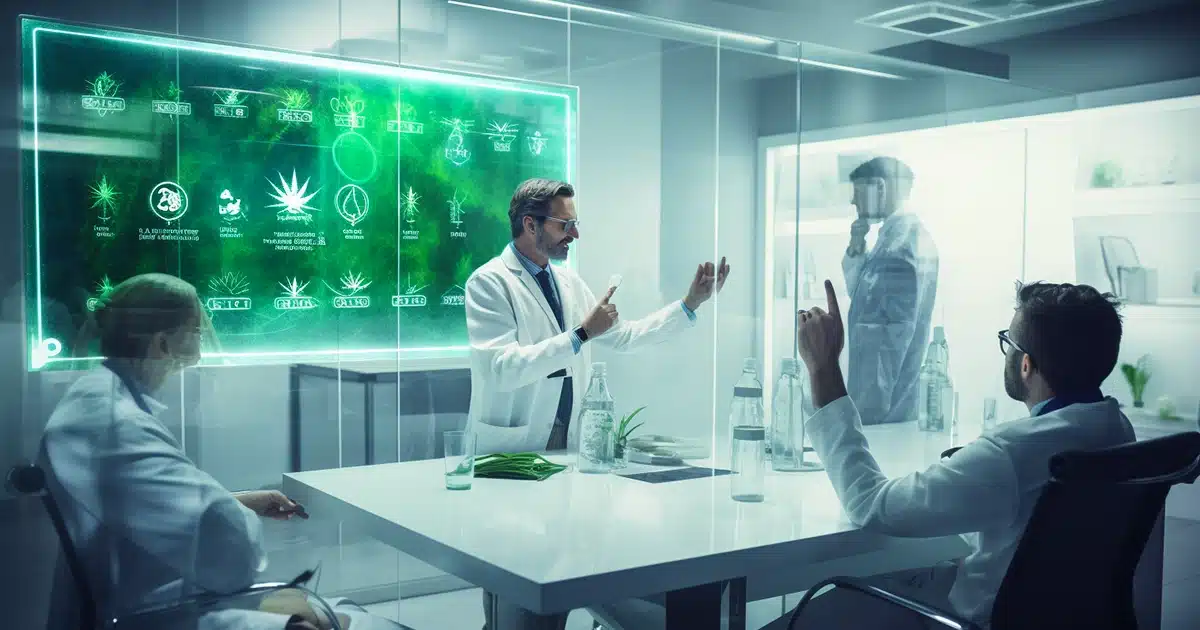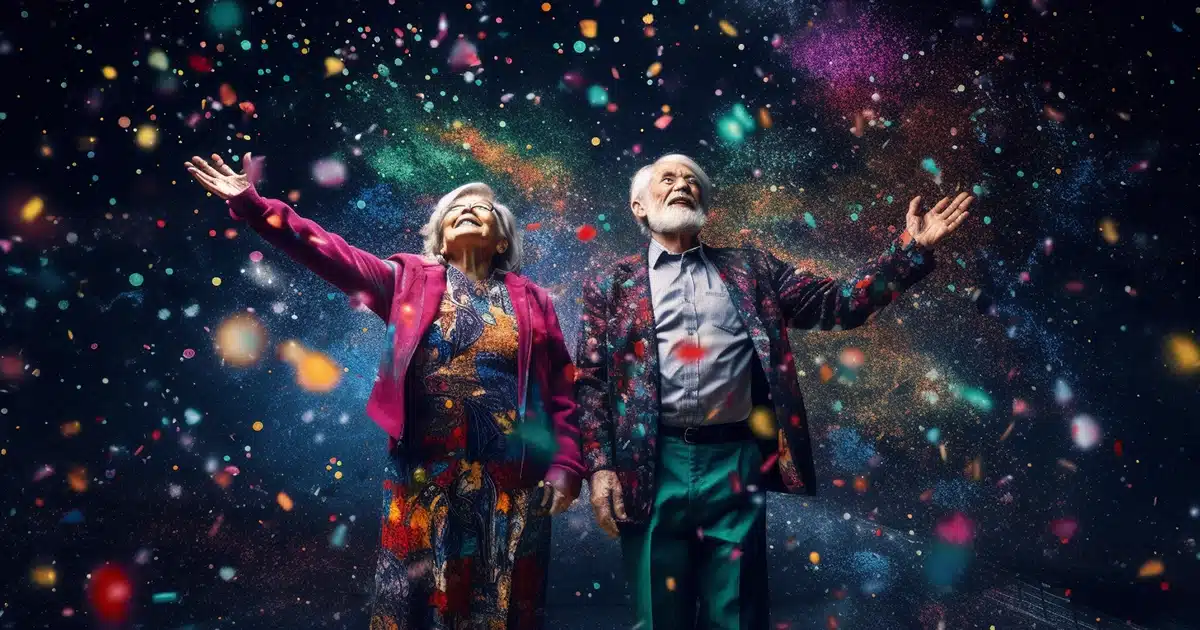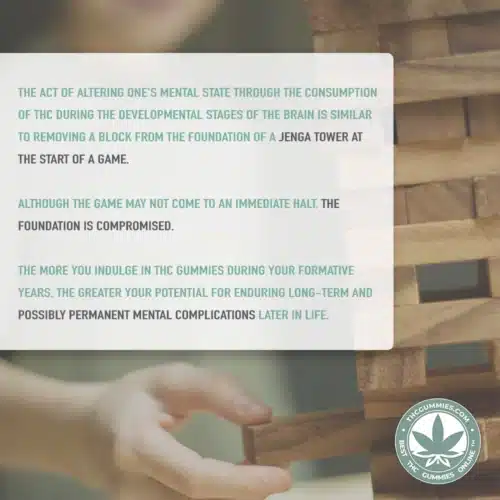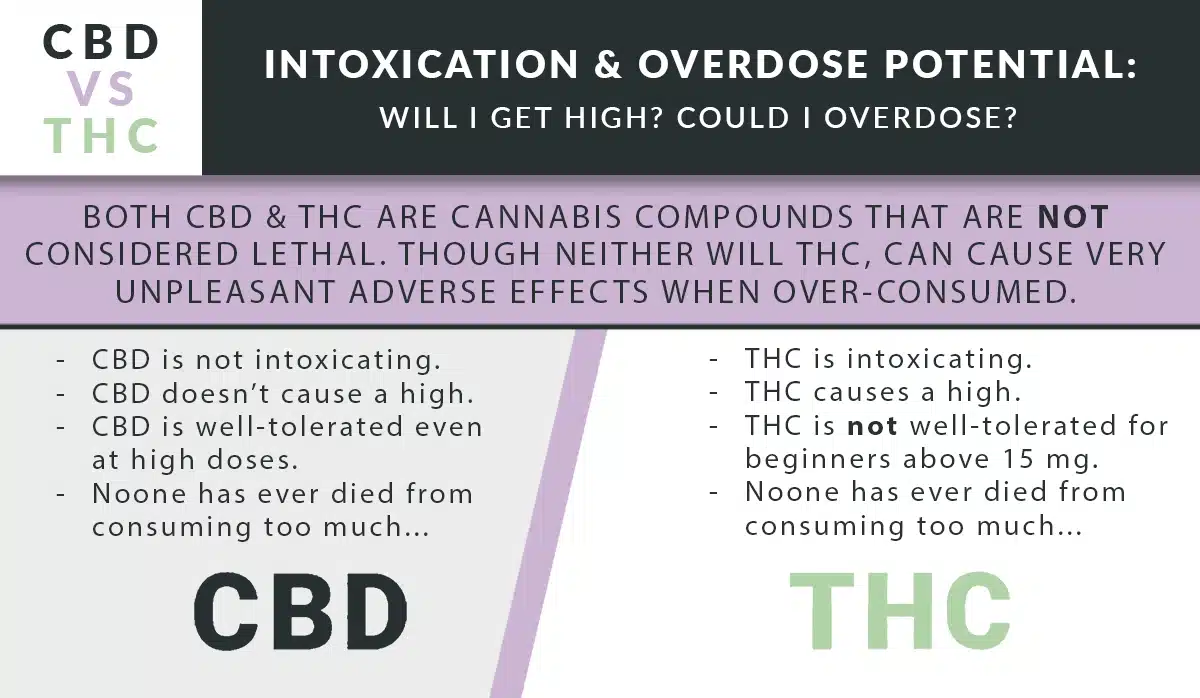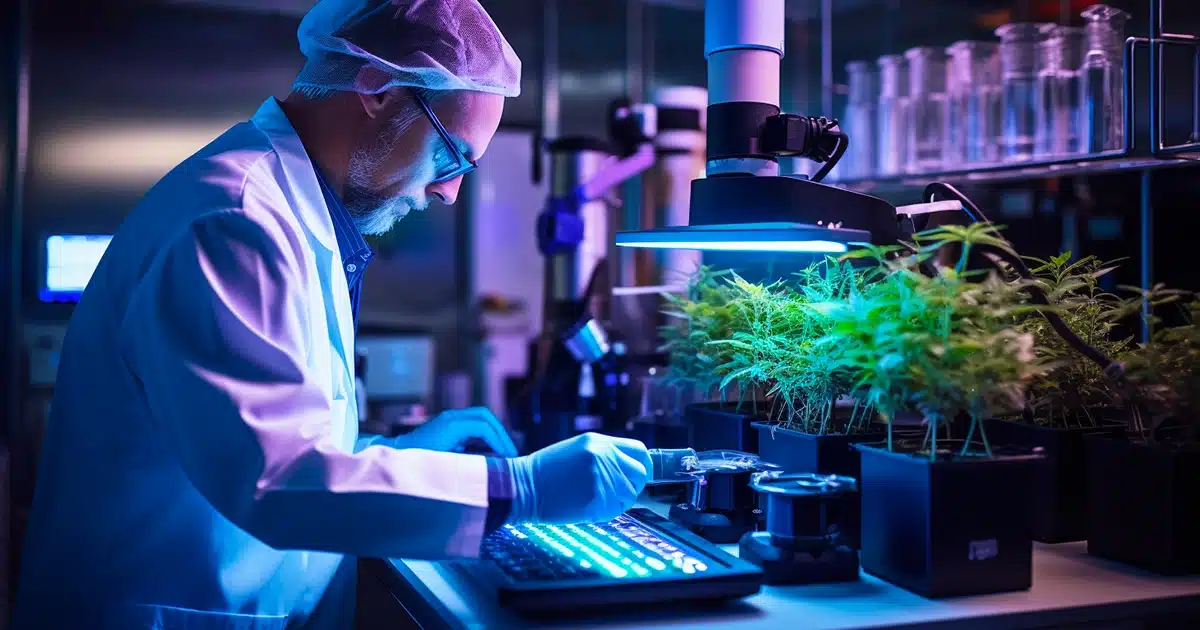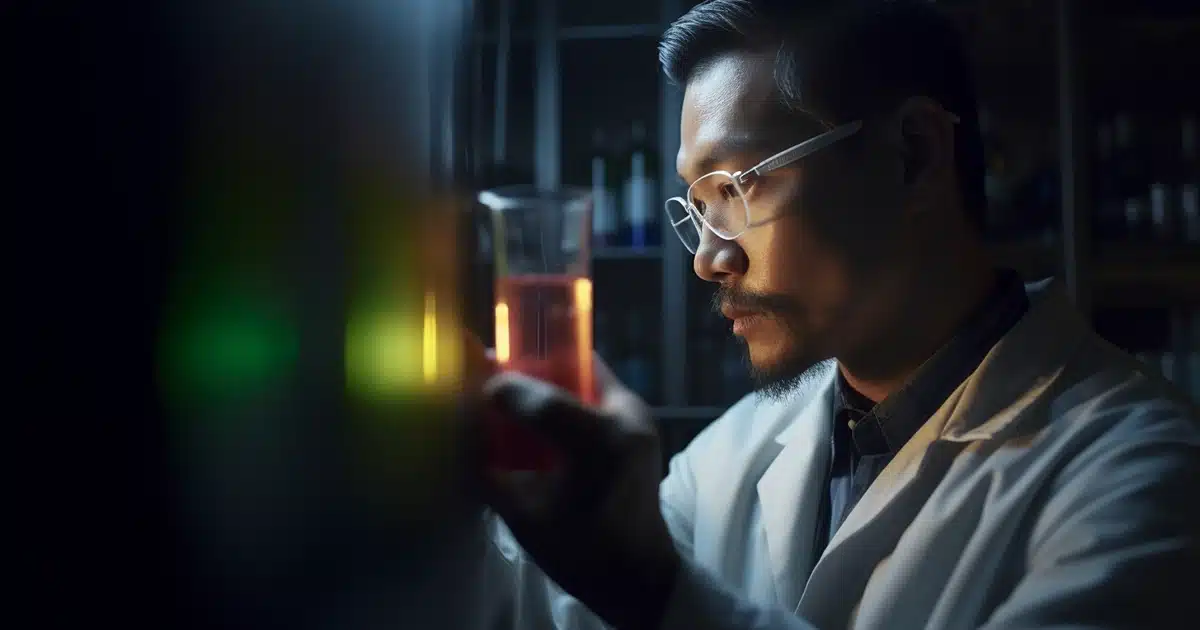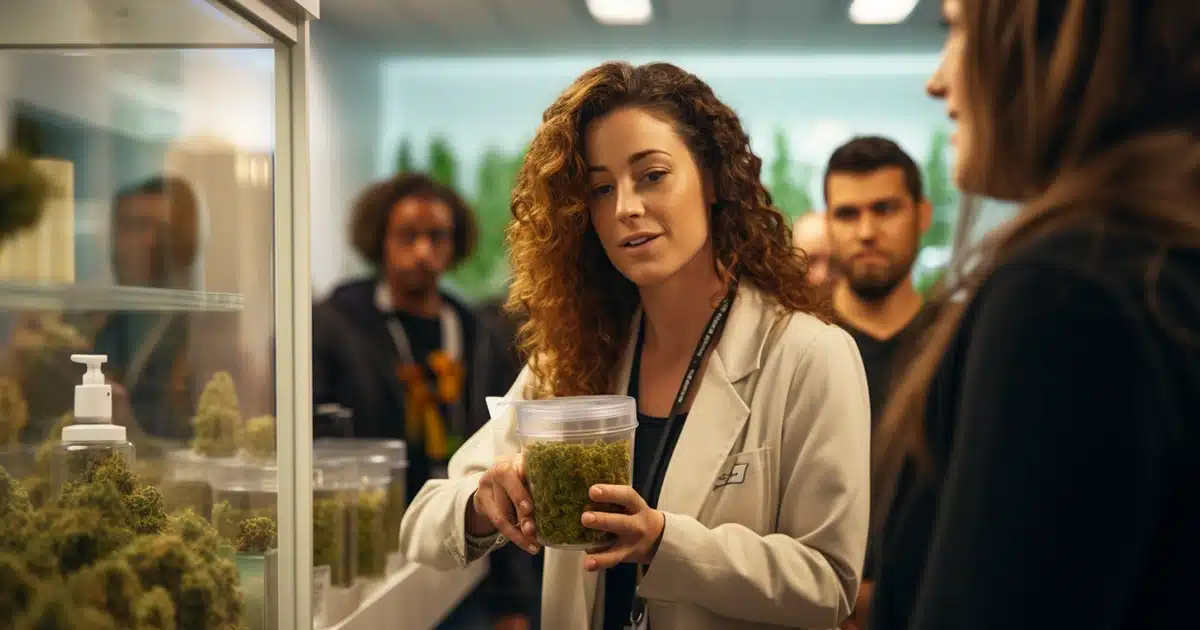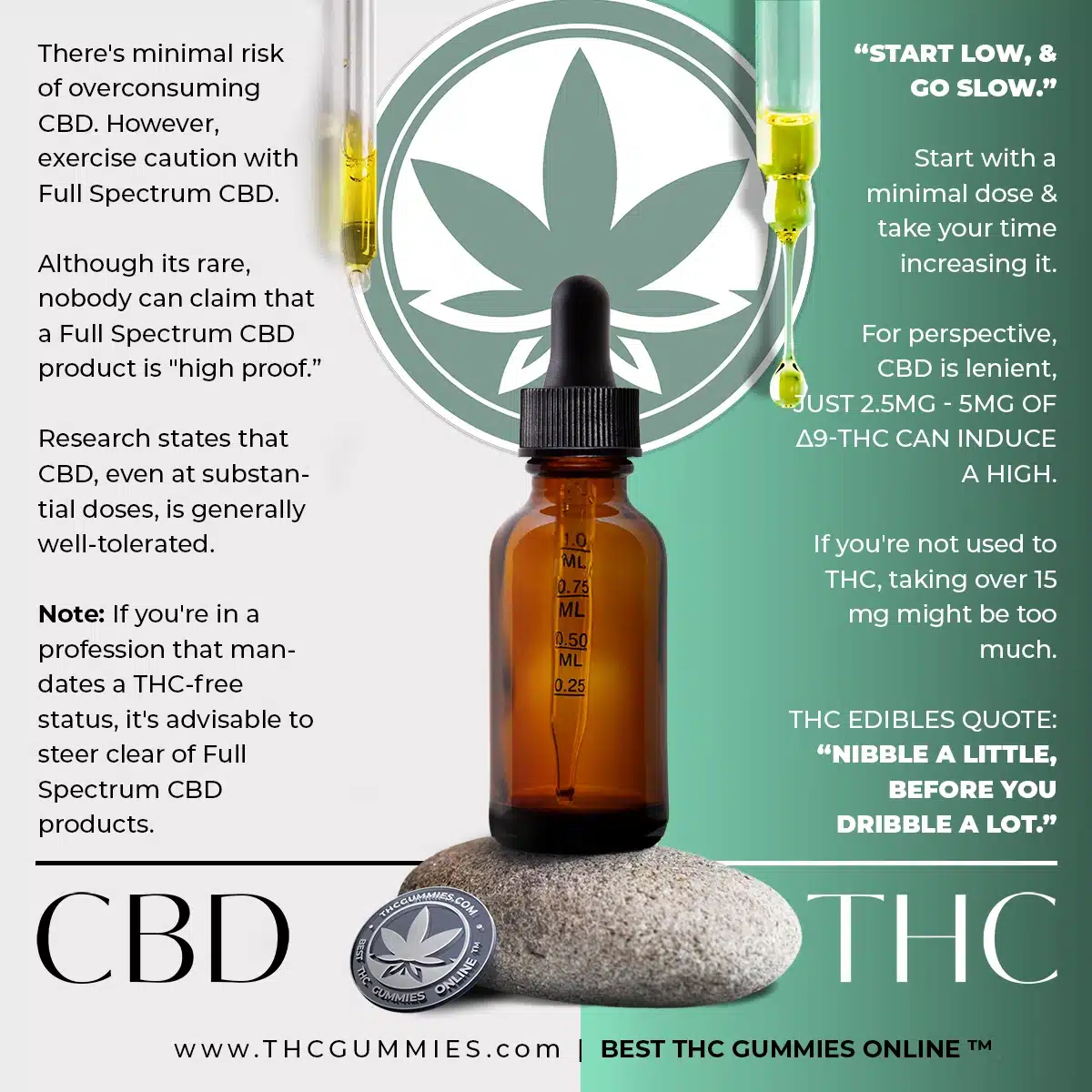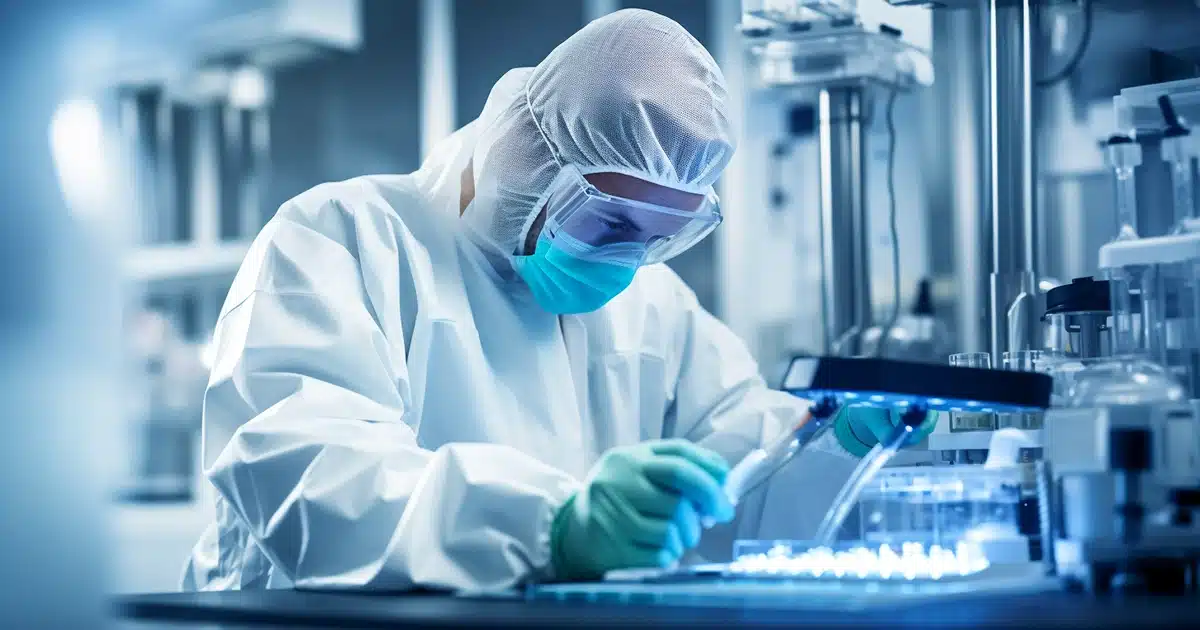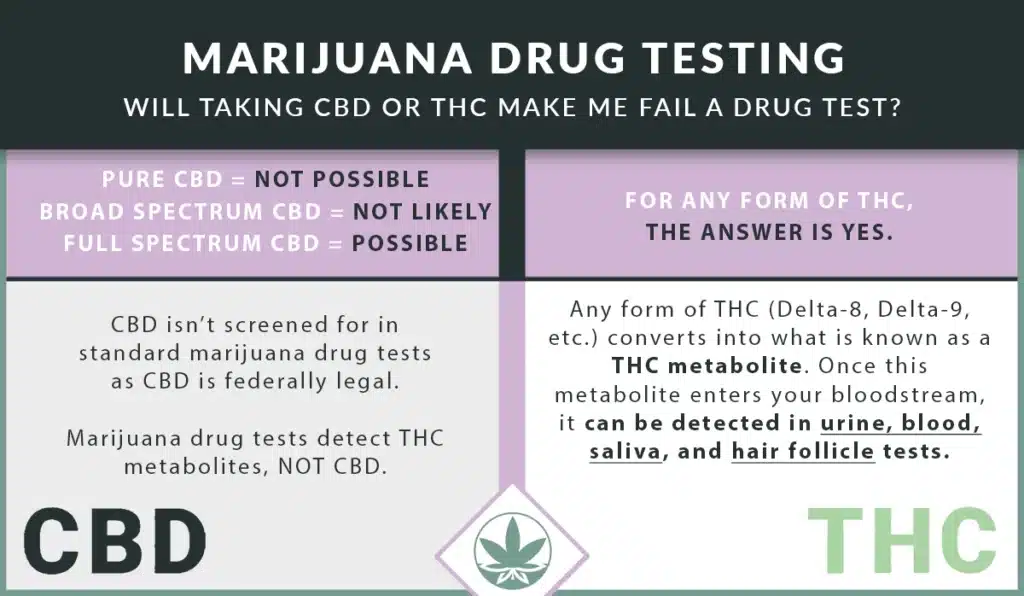CBD vs. THC: A Spotlight On Two Famous Cannabinoids
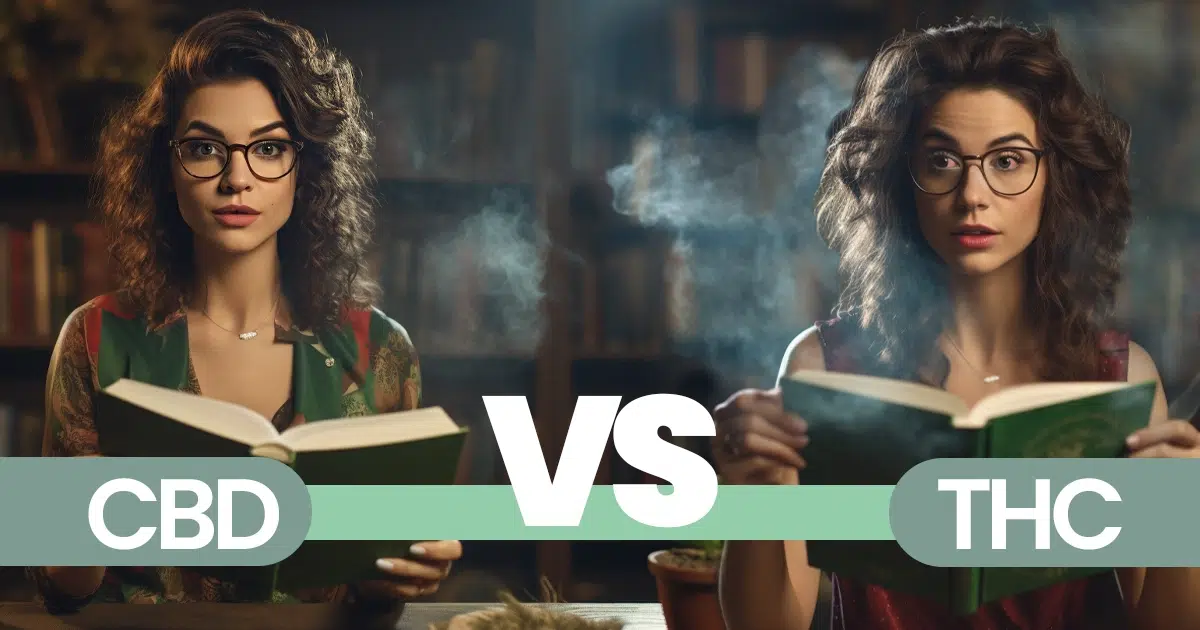

Christopher Visser
Multi-Cannabis Business Owner
Christopher Visser, the Founder and CEO of Cannabidiol Life and THCGummies.com, is a distinguished figure in the CBD industry, recognized for his pioneering contributions since 2016. With over 120 published articles, Christopher has become a reputable cannabis researcher, writer, and author. He's built two prosperous cannabis ventures that collectively generated millions in annual sales. His in-depth analysis of numerous cannabis studies, collaboration with medical professionals, and personal engagement with thousands of customers underline his expertise and commitment to advancing cannabis understanding daily.
-
 Written By:
Christopher Visser
Written By:
Christopher Visser
- Published:
- Updated: February 23, 2024
- Too Quiet, Light Up The Convo!
A battle royal, CBD Vs. THC!
These two cannabinoids get compared to one another, and for good reason; they're the two most popular cannabinoids in Cannabis!
This MEGA ARTICLE compares all the possible key distinctions and commonalities between CBD and THC, and would be a great read for anyone curious about the intricacies of these cannabis compounds.
Table of Contents
Introduction
This comprehensive analysis will shed immense light on THC & CBD; multifaceted cannabis compounds that have helped millions of people worldwide. Think of this article as a highlight reel for these two cannabinoids, you’re going to learn some cool stuff.
If you want complete overviews of either CBD or THC, use these links:
The Basics
Please get familiar with the table of contents below. You’ll notice these several times throughout this article. If you want section-specific on-page navigation, these little pink navigators are awesome.
The Molecular Formula & Chemical Structures of CBD and THC will be dissected first!
Molecular Formula & Structure
CBD & THC Similarities
- Both have the same molecular formula: C₂₁H₃₀O₂ (21 carbons, 30 hydrogens, and 2 oxygens) [1].
- Both have a molecular weight of 314.464 g/mol.
The Critical Difference
- THC contains a cyclic ring, which is a closed loop of atoms forming a circle in the molecule.
- CBD has a hydroxyl group, which is a combination of one hydrogen atom and one oxygen atom bonded together.
While CBD and THC share the same molecular formula, a slight variation in their molecular structures gives them distinct properties.
This difference may seem minor, but it’s this unique variation in molecular structure between THC and CBD is the specific reason why the effects are completely different.
This “minor” difference allows THC to bind directly to cannabinoid receptors (higher affinity for CB1 Receptors) in the body, causing psychoactive effects. In contrast, CBD does not directly bind to these cannabinoid receptor sites and is not intoxicating.
Plant Origin
Same Plant Origins, But Different Plant Classifications
While both CBD and THC are derived from cannabis plants (hemp & marijuana plants), they are typically extracted from different varieties:
CBD:
- CBD is primarily found in Hemp plants; making hemp the preferred source for extracting CBD
- Hemp is scientifically known as Cannabis Sativa, L.
- Cannabis Sativa, L (Hemp) is a variant species within the Cannabis Sativa plant.
- Hemp plants contain trace amounts THC.
- Hemp is defined as cannabis containing 0.3% or less ∆9-THC content on a dry-weight basis.
THC:
- THC is primarily found in Marijuana plants; making marijuana the ideal plant for extracting THC
- Marijuana’s classification name is
- (Marijuana) are variant species within the Cannabis Sativa plant.
- Marijuana plants contain minimal CBD content.
- Marijuana plants contain anywhere from 5-30% THC on average.
Its safe to say that when strictly comparing the available amounts of CBD and THC, marijuana plants and hemp plants are complete opposites.
Product Options & Availability
How easy is it to buy CBD vs THC products?
Thanks to its legal status, CBD is widely accessible in shops and online as capsules, oils, edibles, topicals and more. THC products remain far less available and are technically illegal in states that are not legal recreational or medical marijuana is allowed.
UNLESS:
It’s derived from a Hemp Plant
and
it’s under <0.3% ∆9-THC on a dry-weight basis.
(More on this in the next section).
CBD
- Hemp-derived CBD is sold in many mainstream stores, websites, coffee shops, and specialty stores all across the U.S.
- Numerous CBD product formats, flavors, and CBD brands are widely available and have expanded internationally due to a growing world-wide acceptance.
- CBD is readily available to be purchased online legally.
THC
- Not as many options available to the public.
- Outside of legal states, THC remains available only through illegal, unregulated channels, and hemp-derived THC products, which usually have lesser potencies of THC.
- There is a far less variety of THC edible brands compared to massive CBD market.
- Medical Marijuana THC cannot be purchased online or transported over state lines legally.
Laws & Regulations
Federal Legal Status
CBD
- CBD is federally legal in the United States.
- Most countries (worldwide) allow CBD use as well, however, some countries have completely banned it.
- CBD is generally legal as long as the hemp extract is derived from hemp plants and the final product must contain less than 0.3% Delta-9 THC.
THC
- Its legality varies globally. In the U.S., it’s legal for recreational use in some states, while in others, it’s only legal for medicinal purposes.
Learn more about the legalities of THC edibles.
These are the rules in the United States, laws definitely differ internationally. For example, Brazil allows 1% THC. Learn more about the local and federal laws on CBD.
DEA Classification
How are CBD and THC classified under the U.S. Controlled Substances Act?
While THC remains classified as an illegal Schedule I substance, non- intoxicating CBD from hemp is no longer scheduled federally following the 2018 Farm Bill. However, THC is only considered Schedule III when contained in approved drug products.
CBD
Hemp-derived CBD and other hemp-derived compounds containing <0.3% THC or less, was removed from the Controlled Substances Act through the 2018 Farm Bill, which also removed these compounds from the DEA’s Schedule I classification. Though no longer a “controlled substance,” the FDA regulates its use in food and drugs.
There is a new Industrial Hemp Act of 2023 that is pending as of the publication date of this article and will update the previous regulations found in the Hemp Farm Bill of 2018.
THC
Delta-9 THC is still classified by the DEA as a Schedule I controlled substance at the federal level when derived from marijuana plants.
- Schedule I Classification:
THC is primarily classified as a Schedule I substance. This category is for drugs that are considered to have a high potential for abuse, no accepted medical use, and a lack of accepted safety for use under medical supervision. - Exception – Schedule III:
Interestingly, THC falls under Schedule III when it’s a part of FDA-approved medications like Marinol. In this specific context, it is considered to have accepted medical use and lower potential for abuse.
I don’t know about you guys, but when I read “no medicinal value” in regards to THC’s classification, I couldn’t believe it. Personally, I’ve seen hundreds of videos (maybe even a few thousand videos) of people getting relief from debilitating conditions within minutes of smoking/vaping marijuana.
Also… did anybody catch the hypocrisy here?
Do as I say, not as I do?
So, THC is categorized as a Schedule 1 Drug because it has no medicinal value.” But, when the FDA approves THC to be used as a pharmaceutical drug, THC has medicinal value?
God Bless America!
That’s all of the legal side of things, now let’s jump into one of my favorites topics…
The Benefits.
Comparing the Benefits
Medical Benefits (Potentially)
Benefits of CBD
- Anti-inflammatory
- Anti-anxiety
- Anticonvulsant (can treat epilepsy)
- Chronic Pain relief
- Anti-depressant
- Multiple Sclerosis
- Neuroprotective
- Antioxidant
- Epilepsy
Benefits of THC
- Pain relief
- Appetite stimulant
- Anti-emetic (reduces nausea)
- Mood-Enhancer
- Muscle relaxant
- Stress relief
- Sleep aid
- Reducing intraocular pressure (glaucoma)
Learn more about the benefits of THC gummies.
Therapeutic Potential
CBD
- Wider therapeutic window, meaning it remains safe across a broader range of doses.
- CBD can be used throughout the day without concerns over intoxication or impairment.
- Effects like reduced anxiety or pain relief manifest quickly with CBD oils or vaping.
- Consistent dosing of oral CBD is optimal for maintenance of therapeutic effects.
THC
- Narrower therapeutic window, with a higher potential for adverse effects as the dose increases.
- THC is best suited for evening and nighttime use to aid with sleep, appetite and avoid daytime cognitive slowing.
- Fastacting vaping or edibles work best for THC when rapid effects are desired.
- Extendedrelease THC capsules allow relief overnight without residual effects the next morning.
CBD offers therapeutic potential any time of day without major cognitive impairment, while THC is better suited for evening and nighttime use given its intoxicating, mind-altering properties.
Effects on Mind & Body
Common Adverse Effects (THC Side Effects)
CBD
- Generally well-tolerated
- Fatigue
- Diarrhea
- Changes in appetite
- Potential for drug interactions
THC
- Memory issues
- Dry mouth (Cottonmouth)
- Red eyes
- Slow reaction times
- Coordination problems
- Increased heart rate
- Potential for anxiety and paranoia at high doses
If the terms used in this section are hard to understand, visit our COMPREHENSIVE breakdown of the Endocannabinoid System to learn why supporting this system is vital for your overall health.
Also, visit our in-depth guide with all the different side of THC edibles and GUmmies on a single page.
Neurocognitive & Mental Health Effects
CBD
- Generally does not impair cognition or mental function.
- May potentially help with certain mental health conditions like anxiety, depression, and psychosis (more research is still needed).
- Not known to cause changes in perception, behavior, or consciousness.
THC
- Can impair memory, attention, reaction times, coordination and decision-making, especially at higher doses. These effects are temporary.
- Can amplify emotions and alter sensory perception, often described as a “high.”
- Has been associated with psychotic symptoms in those predisposed to mental illness. Chronic use may exacerbate underlying mental health conditions.
- Frequent or high dose consumption may impact brain development in adolescents.
Physiological And Biological Effects
CBD
- Generally well tolerated but can cause tiredness, diarrhea, and changes in appetite and weight.
- May lower blood pressure and heart rate transiently. Generally does not affect respiration.
- No known negative impacts on the immune system or reproductive system.
THC
- Can increase heart rate for several hours after use. May impact blood pressure.
- Can cause dry mouth, reddening of the eyes, and orthostatic hypotension (feeling faint when standing up).
- May suppress the immune system with chronic heavy use. Evidence on impact to reproductive health is inconclusive.
Age-Related Effects
CBD
- Safe for use by seniors but dose reductions may be needed due to increased sensitivity. Start low and go slow.
- Very limited research on the long-term impact of prolonged CBD use.
- Overall, for all age groups, CBD is generally considered and appears safe (Pure CBD products only for this point).
THC
- Seniors may experience enhanced cognitive impairment and increased risk of falls.
- Extreme care with dosing is advised.
- Developing brains can be impacted with chronic adolescent use. Effects may include reduced attention, memory and problem solving.
The use of Cannabis is becoming a lot more common. When it comes to CBD, evidence is still out on whether it is safe for all ages but if you avoid THC with pure CBD products, many doctors around the world are prescribing it to children already.
THC, on the other hand, is the complete opposite; it should never be given to children or teens unless prescribed by a doctor because other solutions aren’t working.
WARNINGS & Risks
Overdose Potential
CBD
- CBD does not cause any intoxicating effects or “high” sensations.
- CBD is considered well-tolerated and is even safe when large amounts are consumed (1,000 mg of CBD per serving/dose).
- Contrary to popular belief, CBD is a psychoactive compound because it has the ability to activate your mind and change your mental state. To clear up any possible confusion, changing mental states does not mean getting high.
- Want more clarity? Check out this article: Is CBD is psychoactive?
THC
- THC is considered intoxicating.
- THC is responsible for the notorious (and also cherished) “high” sensations.
- It is never recommended to over-indulge with THC, especially beginners without a THC tolerance.
- Nobody has ever died from a THC overdose from either eating or smoking to much THC. However, overconsumption of THC is definitely an experience people should want to avoid at all costs; it really sucks.
- THC is considered both a psychoactive and a psychotropic substance (a compound that alters the state of consciousness).
Articles we offer that pertain to this section:
Addiction Potential
CBD
- No evidence of abuse or dependency potential as per the World Health Organization.
CBD does not produce euphoria, reward, or drug seeking behaviors tied to addiction.
No physical dependence or withdrawal symptoms are linked to stopping CBD use.
CBD may help combat addictive behaviors and substance dependence.
THC
- Potential for abuse or dependency, especially with prolonged high-dose use.
- According to the CDC (Centers of Disease Control And Prevention), 3 out of 10 people who use marijuana have a dependency for it.
- THC can lead to psychological dependence with chronic, heavy use.
- Withdrawal syndrome with irritability, anxiety, appetite changes may manifest when stopping prolonged THC use.
- THC activates reward circuitry that can reinforce drugseeking behavior, especially in susceptible individuals.
THC dependence is considered less severe than most recreational drugs or opioids.
Science & Medicine
Clinical & Scientific Research
Is there a lot of clinical data and scientific research on CBD or THC available?
The answer to this is yes, there is a ton! But most are on animals is, we’re still in the stages of learning what it can and cannot do. So the plethora of studies completed so far
CBD
- Gaining traction in research, especially after the FDA approved Epidiolex for certain forms of epilepsy.
- CBD studies sharply rose in recent years, but human trials remain fairly limited.
- FDA approved Epidiolex following robust randomized trials for seizures.
- Promising signals for anxiety, pain, addiction recovery in small CBD studies.
- DEA restrictions, funding barriers hinder U.S. based THC research.
THC
- Due to its classification, research is more restricted, though it has been researched for its therapeutic potentials for decades.
- Clinical THC research is extremely restricted compared to CBD.
- Small trials show efficacy for pain, nausea, appetite stimulation primarily.
- Preclinical models demonstrate anti inflammatory, neuroprotective, antitumor effects of THC.
- Research focusing on whole cannabis or marijuana remains limited.
Mechanism of Action & Molecular Pathways
This sections deals with your Endocannabinoid System and the mechanisms it contains.
CBD
- Acts on various receptors, most notably the CB2 receptors.
- It also has a complex impact on other non-endocannabinoid receptors and molecular pathways, including serotonin 1A, TRPV1, and GPR55, among others.
THC:
- Primarily binds to CB1 receptors in the brain. This interaction is where the “high” sensations from THC takes place.
- THC can also interact with CB2 receptors, but has a lighter affinity (attraction) to CB2 receptors in comparison to CBD.
If the terms used in this section are hard to understand, visit our COMPREHENSIVE breakdown of the Endocannabinoid System to learn why supporting this system is vital for your overall health.
Medication Interactions
CBD
- CBD can change the way some drugs work in the body by interacting with things like CYP3A4/2C19 enzymes and P-glycoprotein. These are proteins that help break down and remove drugs from the body (Source: NIH.gov).
- A scientific study discovered that CBD can have an effect on a medication called clobazam. This medicine is commonly used to treat severe seizures in children (Source: NIH.gov).
- Research has hinted that there might be slight interactions between CBD and a drug used for ADHD, called methylphenidate (Source: NIH.gov).
- Medications that deal with interacting with HCN1, which helps control electrical signals in the heart and brain, as well as GABA-AT and GABAA, which are involved in sending signals between nerve cells in the brain, could be impacted by the presences of CBD in the body (Source: NIH.gov).
THC
- Sedatives and Hypnotics: THC might intensify the drowsiness caused by medications that are used to induce sleep or reduce anxiety. Common examples include benzodiazepines like Valium and Xanax.
- Blood Thinners: THC may interact with blood-thinning medications like warfarin, possibly affecting blood clotting. It may increase or decrease the effects of these medications, so close monitoring is often necessary.
- Anti-seizure Medications: Some studies suggest that THC may interfere with medications used to control seizures, like phenytoin and carbamazepine, potentially reducing their effectiveness.
- Antiretroviral Drugs: Used in the treatment of HIV/AIDS, these medications may have their effectiveness reduced by THC. The interaction might change how these drugs are processed in the body.
- Alcohol and Opioids: THC can enhance the intoxicating effects of alcohol and the sedative effects of opioids, potentially leading to increased impairment or danger of overdose.
- Antidepressants: Interactions between THC and some antidepressants like fluoxetine have been reported, though the details of these interactions can be complex and variable.
- Blood Pressure Medications: THC might affect blood pressure, potentially interacting with medications used to control hypertension.
- Certain Over-the-Counter Medications: Even over-the-counter drugs like nonsteroidal anti-inflammatory drugs (NSAIDs) can have interactions with THC, potentially affecting how they work.
- Gastrointestinal Medications: Some studies have noted that THC might interact with medications affecting gastrointestinal function, such as those for acid reflux or irritable bowel syndrome.
Dosing & Usage
Onset & Duration
CBD
- Onset is around 15-30 minutes when taken orally. Peak effects at around 1-3 hours.
- Effects typically last for 4-6 hours.
- Onset is almost immediate when vaped/smoked, while effects are shorter lasting 1-3 hours.
THC
- Onset is 30-90 minutes when ingested orally. Peak effects at 2-4 hours.
- Effects can last 6-8 hours or longer depending on the dose.
- Rapid onset within minutes if smoked/vaped. Effects last 1-3 hours.
Learn more about THC edible onset times here, When Do Edibles Kick In?!
Routes of Administration
CBD:
- Oral (capsules, oils, edibles, beverages) – convenient and precise dosing.
- Sublingual (tinctures, sprays) – faster absorption than edibles.
- Topical (lotions, balms) – localized relief, doesn’t reach bloodstream.
- Inhalation (vaping) – fast onset, shorter duration.
THC
- Oral (edibles, oils, tinctures) – slower onset, longer lasting effects.
- Inhalation (smoking, vaping) – rapid effects, easier to titrate dose.
- Topicals – localized relief without systemic effects.
- Rectal/vaginal suppositories – direct absorption into bloodstream.
Dosing Considerations
CBD:
- Start low (15-25 mg) and increase slowly every few days if needed.
- Consider your weight, reasons for use, and sensitivity to determine dosage.
- Chronic conditions may need higher doses (40-160 mg) split through the day.
THC
- Start very low, 2.5-5 mg to assess tolerance if inexperienced.
- Increase dosage slowly every 60-90 minutes if desired effects are not achieved.
- Consider your weight, tolerance, product type (edible, inhaled) and experience level with THC when dosing.
Learn more about how much CBD or THC you should be taking with our informative article complete with Edible Dosage Calculator!
Drug-Testing
Marijuana Drug Tests
Both CBD and THC have the potential to generate a positive result on a drug screening, with THC being much more likely to do so. The concentration and source of the CBD or THC product can influence the likelihood of a failed test. Both CBD and THC carry the risk of failing a drug test, but THC is much more likely to be detected. CBD source and concentration play a large role in potential false positives.
CBD
- Typically not screened for in standard marijuana drug tests.
- CBD products that contain less than 0.3% THC are unlikely to make you fail a drug test; however, the possibility cannot be ruled out.
- Full spectrum CBD products are more likely to contain traces of THC that could trigger a positive.
- Broad spectrum CBD products is recognize for have “non-dectable amounts of Delta-9 THC“; however, non-detectable doesn’t mean 100% not present.
- To avoid any doubt, Pure CBD isolate products are recommended for anyone concerned about passing a drug screening since there is
- Full spectrum CBD risks false positives due to trace THC content.
- Federal workplace tests have 50 ng/mL cutoff where false positives are rare.
THC
- Detected in urine, blood, saliva, and hair tests. Can remain detectable for several days to weeks, depending on frequency of use.
- Consuming THC will pretty much always trigger a positive result on a standard drug screening.
- Any marijuana, edible, or THC concentrate will result in detection of THC metabolites by most tests.
- Abstaining from THC use for an extended period is required to pass a test. THC can stay detectable in chronic users for over a month.
- Any THC ingestion can result in failed cannabis drug tests.
- Infrequent or single-time THC use is often detectable for up to 5 days via blood and urine analysis.
- Chronic use can cause THC to be detected for over a month after stopping.
Visit our Edible Drug Testing blog page to learn more or check out our article titled, How Long Do Edibles Stay In Your System?
Concluding Thoughts
The exploration of CBD and THC uncovers a complex landscape of differences and similarities, each with its unique therapeutic attributes and legal considerations. From the psychoactive wellness aid of CBD to the psychoactive and psychotropic medicinal potential of THC, understanding these cannabinoids requires a nuanced look at their individual effects, legal standing, and applications.
Nonetheless, you should have a much better idea of which cannabinoid is right for you before buying edibles online.
Lastly, I believe that discussions around CBD and THC will continue to evolve, and your participation below will directly aid in fostering a community where information and perspectives can flourish. So, please leave your thoughts, comments, and questions below as you are an invaluable part of this dialogue.
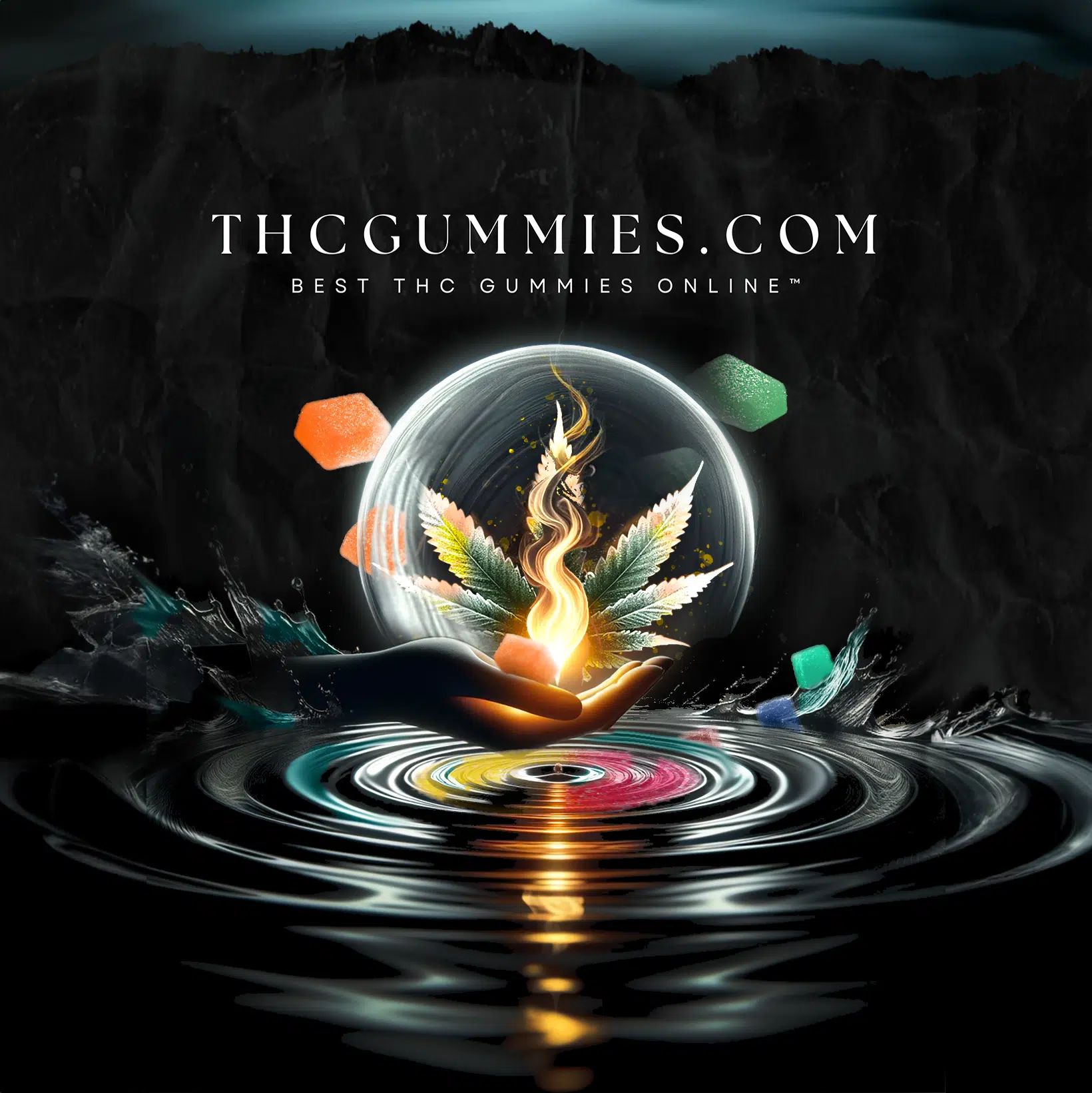
If this article sparked a new insight, pass the flame…
LET’S IGNITE RIPPLES OF CANNABIS WISDOM.
Be the catalyst for someone’s breakthrough moment.
SHARE ON SOCIAL MEDIA

YOUR CANNABIS EDIBLE
JOURNEY CONTINUES:
Looking For Something Else?
